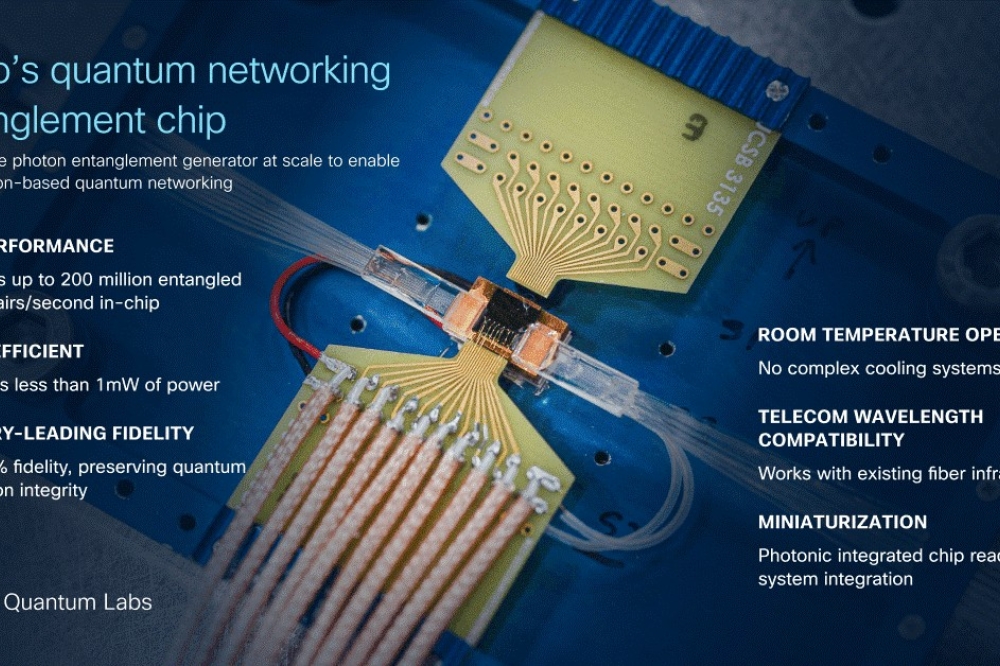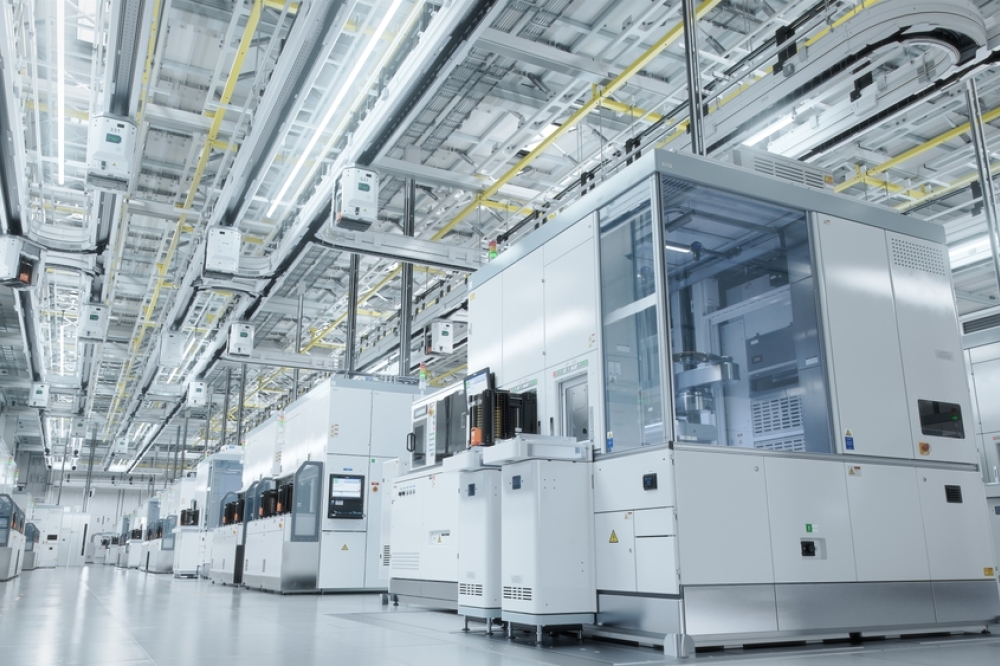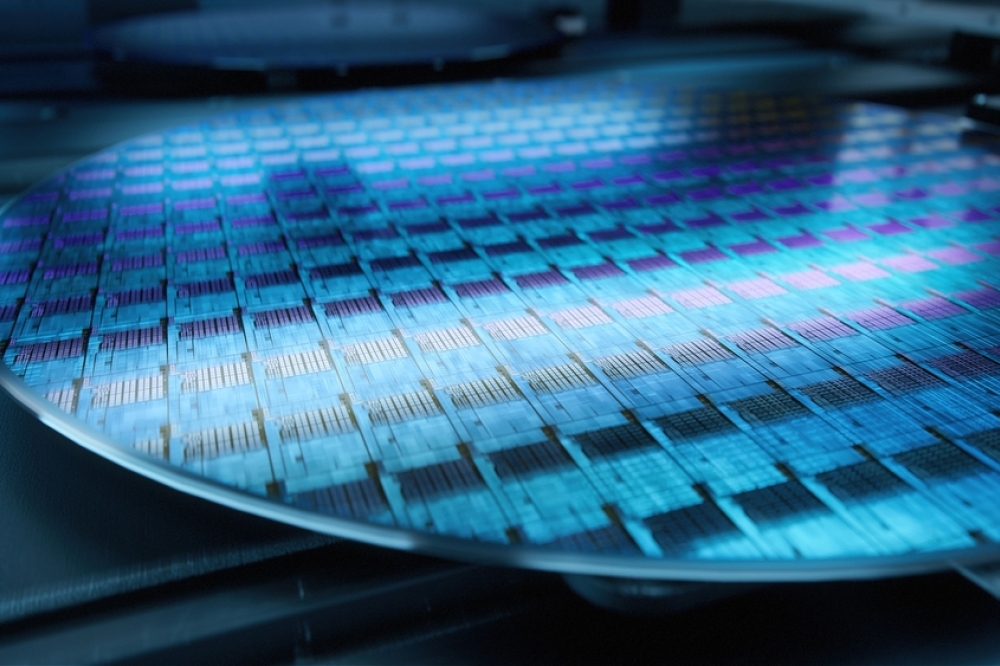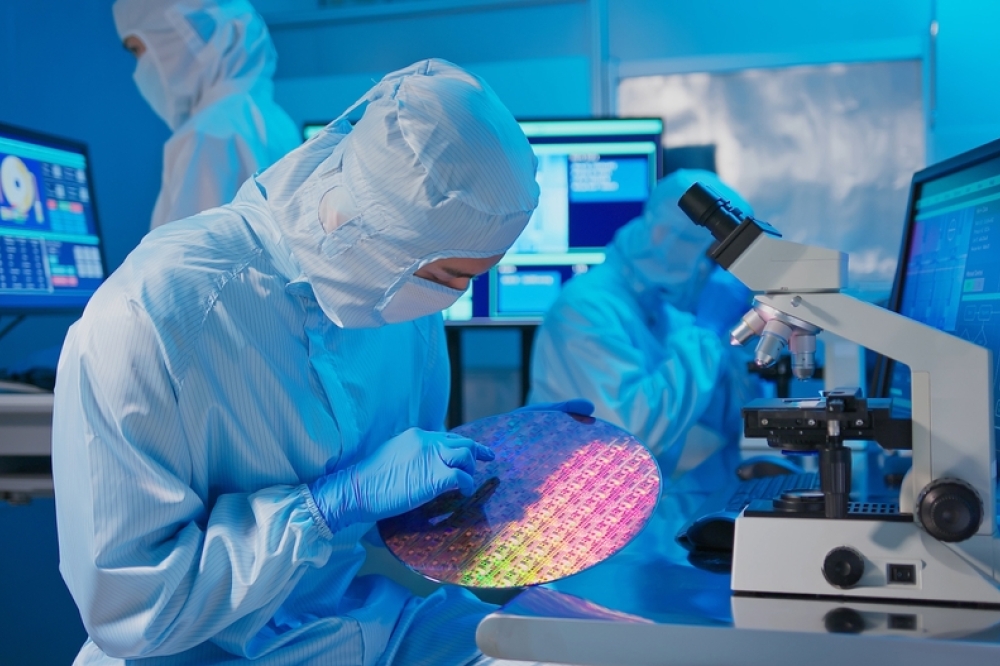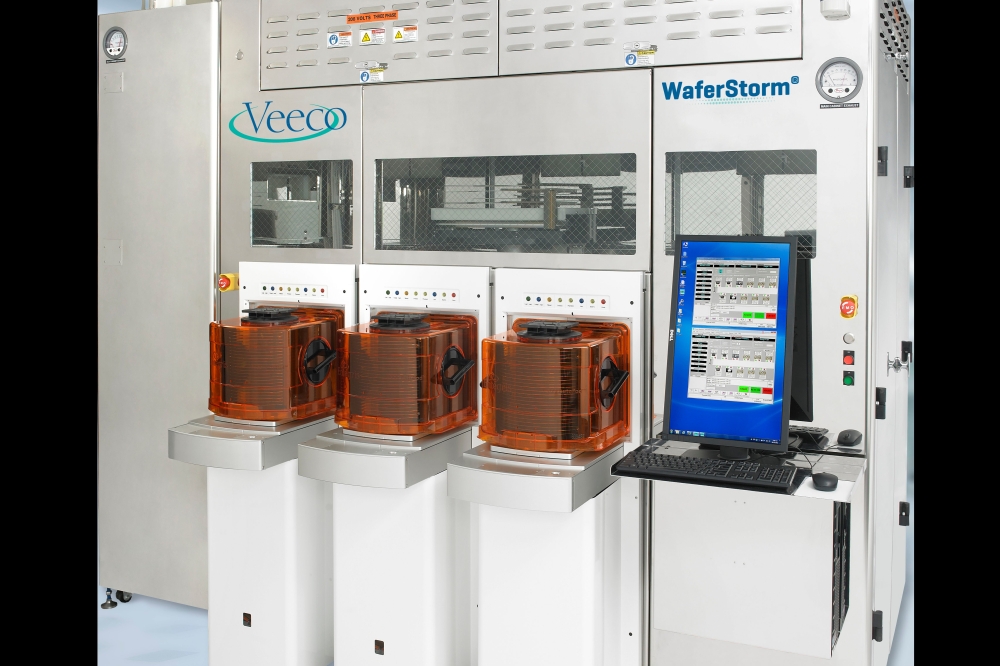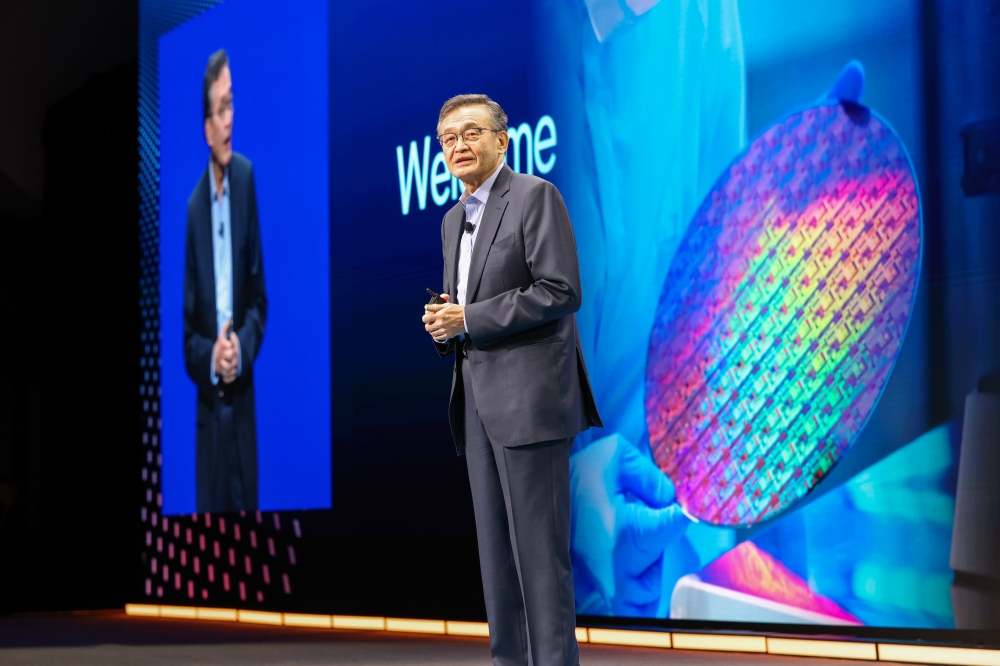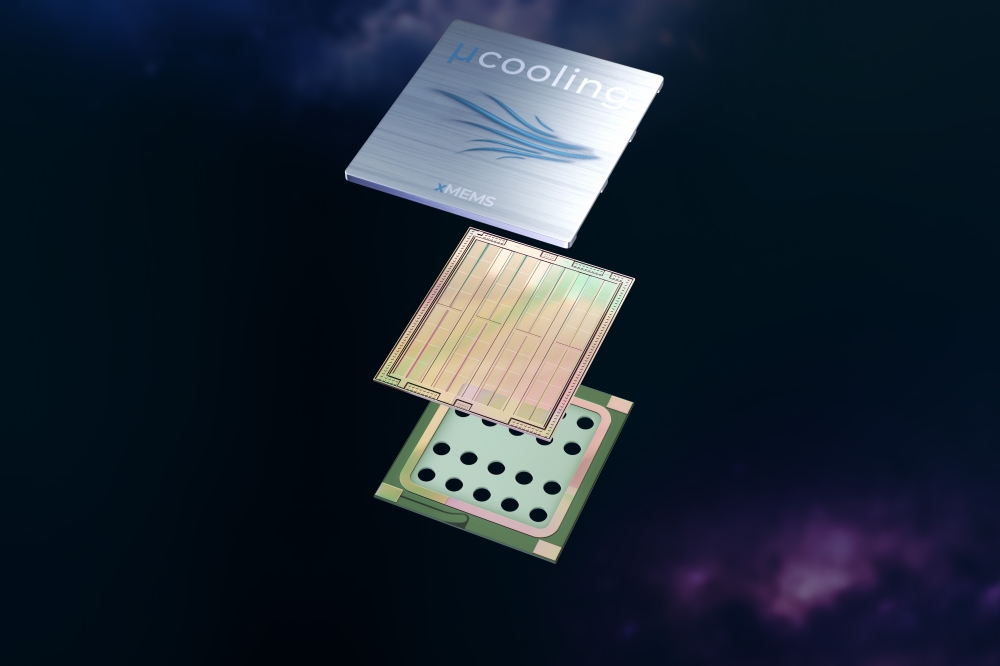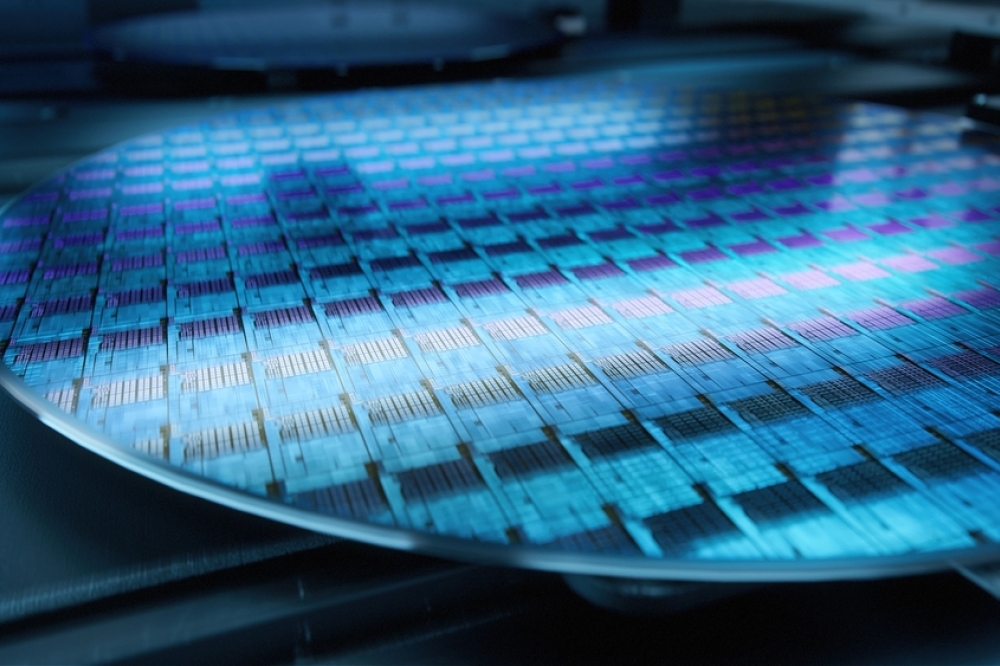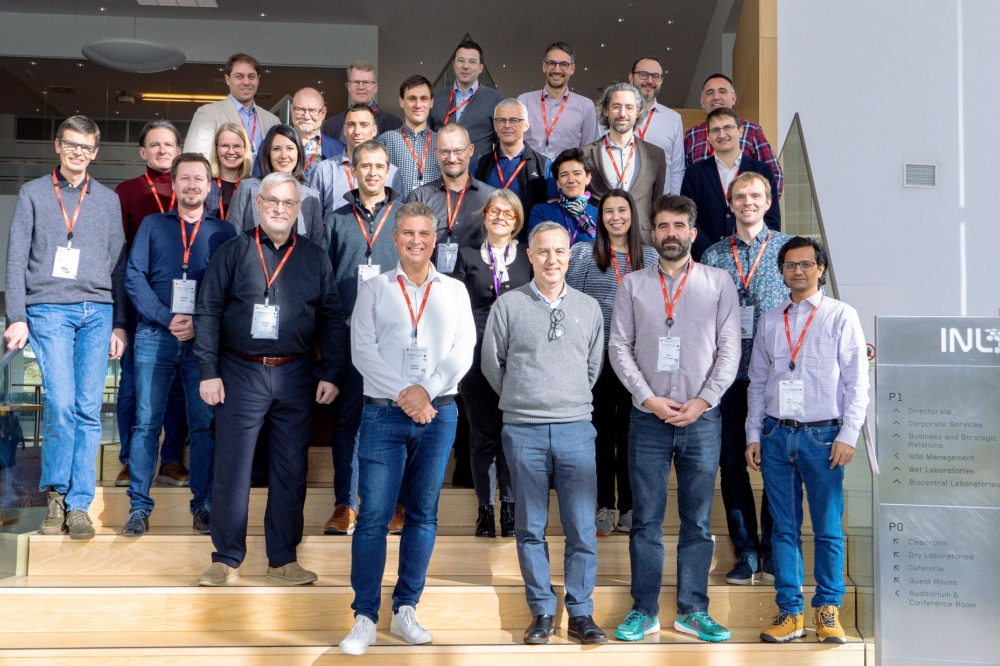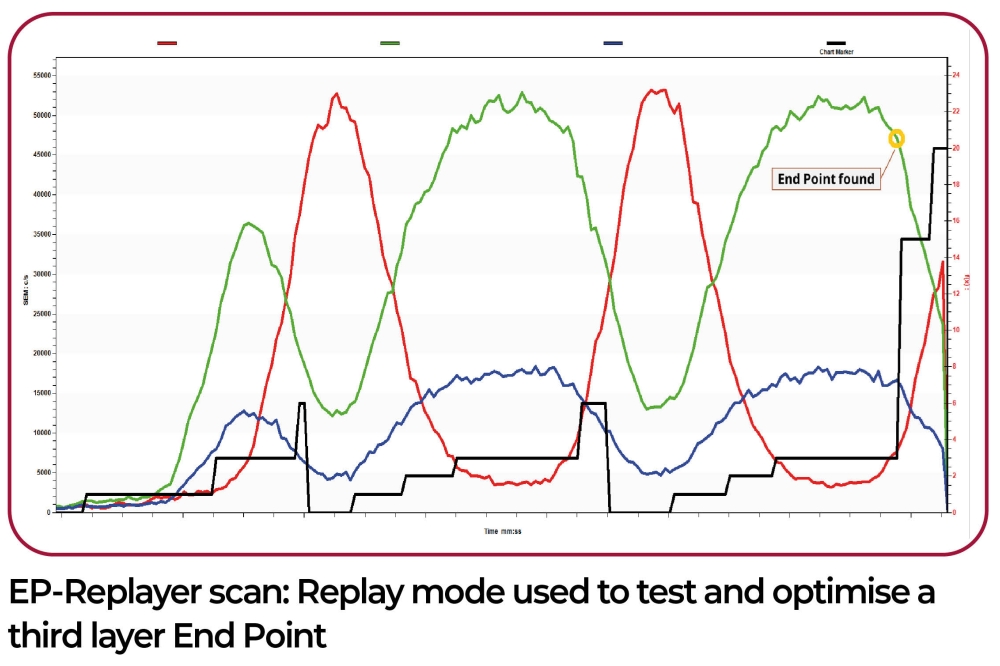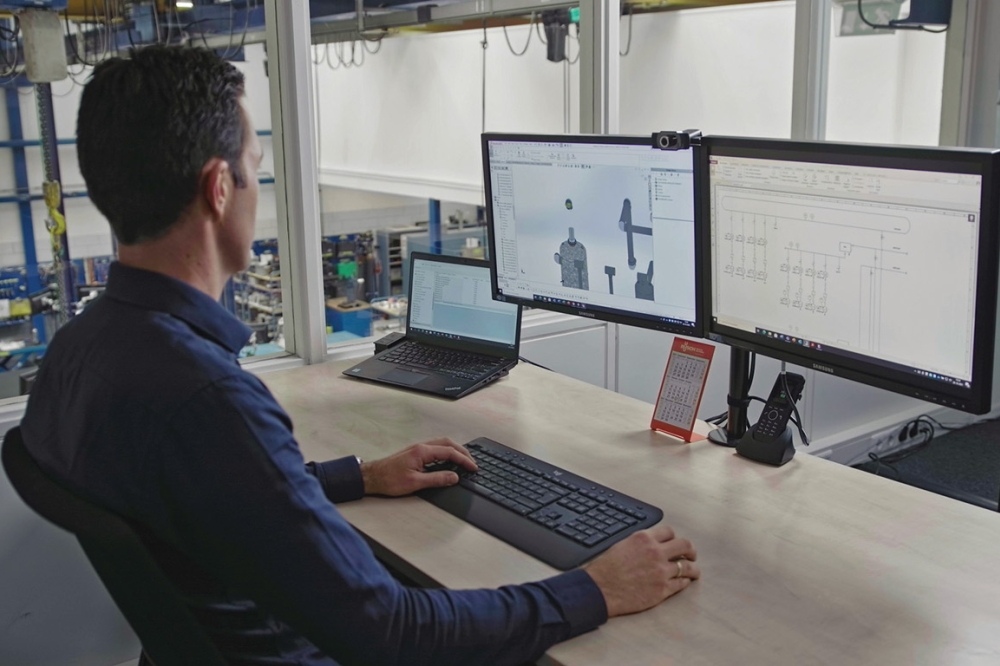European-first semiconductor facility launches in Southampton

A new facility to build the next generation of semiconductor chips, and the first of its kind in Europe, has been opened at the University of Southampton.
A new facility using cutting edge electron beam technology to build the next generation of semiconductor chips, and the first of its kind in Europe, has been opened at the University of Southampton by Science Minister Lord Vallance today.
The new E-beam lithography facility is just the second in the world, and first outside Japan, and provides incredible accuracy that is critical to designing the tiny components that power technologies of the future, from medical diagnostics to defence systems.
Semiconductors – the small chips that power devices from smartphones to satellites - already contribute an estimated £10 billion to our economy each year, with the sector projected to grow to an estimated £17 billion by 2030.
Strengthening the sector offers a major opportunity to drive the growth at the heart of our Plan for Change, through boosting innovation and jobs. It also supports the UK’s wider Industrial Strategy to grow key advanced manufacturing sectors and secure global competitiveness.
E-beam lithography uses a focused beam of tiny particles called electrons to create patterns in materials with unrivalled resolution – allowing researchers to create features thousands of times smaller than a human hair.
Science Minister, Lord Vallance, said: "Britain is home to some of the most exciting semiconductor research anywhere in the world – and Southampton’s new E-beam facility is a major boost to our national capabilities.
"By investing in both infrastructure and talent, we’re giving our researchers and innovators the support they need to develop next-generation chips right here in the UK.
"Our £4.75 million skills package will support our Plan for Change by helping more young people into high-value semiconductors careers, closing skills gaps and backing growth in this critical sector."
The Science Minister’s visit to Southampton comes alongside new research being published today, which shows that one of the biggest barriers to achieving growth in the UK’s burgeoning semiconductor industry is a lack of emerging talent. With a single semiconductor worker contributing an average of £460,000 to the economy annually, the sector’s economic potential is huge.
In response, the government has launched a new £4.75 million semiconductor skills package to help build the talent base needed to fuel this high-growth industry. The package will also help strengthen R&D capacity at leading universities, such as Southampton, which are central to UK semiconductor innovation and talent development.
By supporting local talent pipelines and university–industry collaboration, the programme will contribute to both regional and national economic growth, fuelling our Plan for Change, and reinforcing the role the semiconductors industry is set to play in the Industrial Strategy.
The package includes:
£3 million for undergraduate bursaries, offering £5,000 each to 300 students starting Electronics and Electrical Engineering degrees this year, alongside specialist semiconductor content to raise awareness of the field, with a focus on courses that include semiconductor design and manufacturing.
£1.2 million for chip design training, with new chip design courses to teach practical chip design skills to undergraduates, postgraduates, and lecturers, as well as a feasibility study for new postgraduate conversion courses.
Almost £550,000 for school outreach, giving 7,000 students aged 15–18 and 450 teachers hands-on semiconductor experience in partnership with local employers, helping raise awareness and diversify the future workforce. This programme will be focused on existing UK semiconductor clusters – such as Newport, Cambridge, and Glasgow – helping to strengthen these ecosystems and create long-term career opportunities.
This targeted skills support will underpin the long-term success of the UK semiconductor sector – helping to attract more students into high-value careers, fill key vacancies and support UK leadership in critical and emerging technologies that will be instrumental to our mission to grow the economy.
University of Southampton’s Professor Graham Reed, who leads its Optoelectronics Research Centre (ORC), said: "The introduction of the new E-Beam facility will reinforce our position of hosting the most advanced cleanroom in UK academia.
"It facilitates a vast array of innovative and industrially relevant research, and much needed semiconductor skills training."





